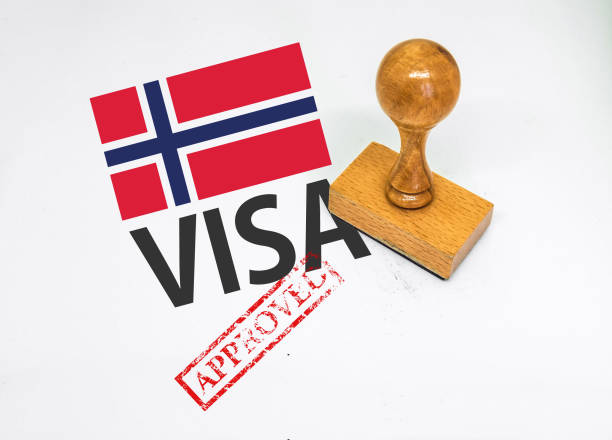Launching Your Global Journey: A Comprehensive Guide to Scholarships for South Africans Studying Abroad
Embarking on an academic journey abroad can be an enriching and transformative experience for South African students. International exposure broadens perspectives, fosters intercultural understanding, and equips you with valuable skills sought after by employers worldwide. However, the financial implications of studying abroad can be daunting. This comprehensive guide empowers you to navigate the landscape of scholarships designed to support South African students pursuing international education.
Advertisements
Unveiling the Scholarship Universe – Exploring Diverse Opportunities
The world of scholarships for South African students abroad is vast and multifaceted. Here’s a glimpse into the diverse funding options you can explore:
Government Scholarships:
- The Department of Higher Education and Training (DHET) in South Africa administers several scholarship programs specifically designed to support South African students pursuing postgraduate studies abroad. These programs often prioritize study disciplines aligned with national development goals.
- The National Research Foundation (NRF) of South Africa offers prestigious scholarship programs for exceptional students seeking to pursue postgraduate studies (Masters and PhD) in research-intensive fields at accredited universities worldwide.
University Scholarships:
- Numerous universities around the world offer merit-based scholarships specifically for international students, including South Africans. These scholarships recognize academic excellence and can range from partial tuition coverage to full scholarships with living expenses included. Researching scholarship offerings from universities you’re interested in attending is crucial in maximizing your funding opportunities.
International Scholarship Programs:
- Organizations like the Commonwealth Scholarship Commission (CSC) and the Rhodes Scholarship Trust offer prestigious scholarships for postgraduate studies in Commonwealth countries or at the University of Oxford, respectively. These scholarships are highly competitive but offer an unparalleled opportunity to study alongside exceptional international scholars.
Private Foundations and Donor Funds:
Advertisements
- Numerous private foundations and donor funds offer scholarships for international students, including South Africans, in specific fields of study or aligned with their philanthropic missions. Researching foundations and organizations relevant to your academic pursuits can lead to unique scholarship opportunities.
Foreign Government Scholarships:
- Many foreign governments offer scholarships to attract international students to their universities. Explore scholarship programs offered by embassies or consulates of countries you’re interested in studying in. These scholarships might prioritize specific academic disciplines or promote cultural exchange between nations.
Building a Competitive Application – Showcasing Your Global Potential
A strong scholarship application is the key to unlocking funding for your international studies. Here’s how to craft a compelling application that sets you apart:
Academic Excellence – The Foundation for Success:
- Maintain a strong academic record throughout your high school or undergraduate studies. High grades demonstrate your academic ability and commitment to learning, which are crucial factors for most scholarship committees.
Standardized Test Scores:
- Many scholarships require standardized test scores like the SAT, ACT, GMAT, or GRE for postgraduate studies. Strive for exceptional scores on these exams to demonstrate your preparedness for the rigors of international education.
A Compelling Statement of Purpose:
- The statement of purpose is your opportunity to tell your story and articulate your academic goals. Clearly explain why you’re seeking to study abroad, what specific program you’re applying to, and how that program aligns with your long-term career aspirations.
- Highlight your research interests, relevant experiences, and unique skills that make you a strong candidate for the scholarship and the chosen academic program.
Letters of Recommendation – Endorsements from Trusted Sources:
- Request letters of recommendation from professors, advisors, or mentors who are familiar with your academic achievements, work ethic, and potential. Choose recommenders who can write compelling letters that showcase your strengths and suitability for the scholarship and international education.
Extracurricular Activities and Achievements:
- Highlight your involvement in extracurricular activities, leadership roles, volunteer work, or community engagement. These experiences demonstrate your well-roundedness, initiative, and commitment to making a positive impact – qualities valued by many scholarship providers.
Optimizing Your Scholarship Search – Strategies for Success
Finding the right scholarship requires a proactive and strategic approach. Here are strategies to maximize your chances of securing funding:
Start Early – Laying the Foundation for Success:
- Begin your scholarship search well in advance of application deadlines for universities abroad. This allows ample time to research opportunities, gather required documents, and craft compelling application materials.
Cast a Wide Net – Apply to Multiple Scholarships:
Don’t limit yourself to a few options. Research and apply to numerous scholarships that align with your academic profile, financial needs, and chosen field of study. The more applications you submit, the higher your chances of securing funding.
Tailor Your Application – Showcase Your Uniqueness
Generic applications won’t stand out. Here’s how to tailor your application for maximum impact:
- Read application instructions carefully: Each scholarship has specific requirements and deadlines. Meticulously review all instructions and ensure your application adheres to the format and specificationsoutlined by the scholarship provider.
- Highlight relevant experiences:Don’t simply list your experiences – explain how they shaped your academic interests and prepared you for the challenges of studying abroad. For example, if you volunteered at a wildlife rehabilitation center, emphasize the connection to your desire to pursue a degree in conservation biology overseas.
- Demonstrate cultural awareness:Studying abroad is an intercultural experience. Research the customs, traditions, and educational systems of your chosen destination country. Highlight your eagerness to embrace a new culture and contribute positively to the academic environment at the host university.
Beyond Scholarships – Exploring Additional Funding Avenues
While scholarships offer valuable support, securing a robust financial aid package for studying abroad might require exploring additional avenues. Here are some alternative funding options to consider:
-
Student Loans – Financing Your Education (Borrow Wisely)
Student loans can be a viable option to bridge the funding gap for your international studies. However, it’s crucial to approach student loans with caution and a clear understanding of the long-term implications. Carefully research loan options offered by South African banks or international lenders, comparing interest rates, repayment terms, and any associated fees. Ensure you can comfortably manage monthly repayments after graduation without compromising your financial well-being.
-
Work-Study Programs and Scholarships with Work Requirements
Explore work-study programs offered by your chosen university abroad. These programs allow you to work part-time on campus or with approved employers, contributing to your living expenses while gaining valuable international work experience. Additionally, some scholarships might come with work requirements after graduation. Weigh the benefits and potential career opportunities associated with such scholarships to ensure they align with your long-term goals.
-
Crowdfunding Platforms – Raising Funds from Your Network
Crowdfunding platforms allow you to raise funds for your studies by connecting with friends, family, and even strangers who are willing to contribute financially to your educational journey. Crafting a compelling campaign that outlines your academic goals, chosen program, and how the funds will be used can be a successful strategy for securing additional resources.
-
Part-Time Work During Holidays or Breaks
Depending on visa regulations in your chosen destination country, explore opportunities for part-time work during semester breaks or summer holidays. This can help offset living expenses and provide valuable work experience in an international setting. Research legal work authorization requirements for international students to ensure you comply with all regulations.
Preparing for Your Global Adventure – Beyond Financial Considerations
Securing funding is a crucial step, but successful international studies require preparation beyond finances. Here’s a roadmap to ensure a smooth and enriching academic experience abroad:
Academic Preparation
-
Standardized Testing Requirements: Many universities abroad require standardized tests like the SAT or ACT for undergraduate admissions and the GMAT or GRE for postgraduate programs. Research the specific testing requirements for your chosen universities and ensure you register for the necessary exams well in advance.
-
Transcript Evaluation: International universities might require your South African transcripts to be evaluated by an authorized agency to ensure they meet their admission standards. Research credential evaluation services recognized by your target institutions and initiate the evaluation process early to avoid delays in your application.
-
Curriculum Research: Curriculums can differ between South African universities and those abroad. Research the course structure, teaching styles, and assessment methods of your chosen program to ensure you’re well-prepared for the academic expectations. Consider contacting professors or current students at the university for insights into the program’s specific demands.
Visa and Immigration Procedures
-
Visa Requirements: Research the visa requirements for your chosen destination country well in advance. The application process can involve paperwork, interviews, and potentially medical examinations. Gather all necessary documents, comply with deadlines, and factor in visa processing times when planning your departure.
-
Immigration Regulations: Familiarize yourself with immigration regulations, including permitted work hours for international students (if applicable) and any reporting requirements you might need to fulfill during your stay abroad.
-
Student Health Insurance: Ensure you have comprehensive student health insurance that covers you for medical emergencies and potential hospitalizations while studying abroad. Many universities require proof of health insurance before enrollment.
Cultural Adjustment and Pre-Departure Planning
-
Cultural Research: Immerse yourself in the culture of your host country. Learn about customs, traditions, etiquette, and social norms. This will ease your transition and foster a more positive international experience. Consider enrolling in language courses or attending cultural events to enhance your understanding.
-
Accommodation Options: Research student housing options offered by your university or explore alternative housing arrangements that suit your budget and preferences. Secure your accommodation well in advance, especially if you’re targeting popular student cities with limited housing availability.
-
Budgeting and Cost of Living: Research the cost of living in your chosen destination city. Factor in expenses beyond tuition fees, including accommodation, food, transportation, course materials, and potential entertainment costs. Adjust your budget accordingly and explore money-saving strategies like student discounts or utilizing public transportation.
-
Travel and Arrival Logistics: Research flight options, visa requirements for layovers (if applicable), and airport transportation in your destination city. Book your flights well in advance, especially during peak travel seasons. Consider registering with the South African embassy or consulate in your host country for additional support and resources upon arrival.
Building Your Global Network
-
Connect with International Students: Universities often have international student organizations or online forums specifically designed to connect incoming students with current international students and local student communities. Actively participate in these platforms to build friendships, seek advice, and ease your integration into the university environment.
-
Embrace the Local Culture: Actively participate in cultural events, explore local cuisine, and engage with people from your host country. Step outside your comfort zone and embrace opportunities to learn and grow from diverse perspectives. This will enrich your overall international experience.
-
Stay Connected with Back Home: Studying abroad doesn’t mean losing touch with loved ones back home. Utilize technology to stay connected with family and friends in South Africa. However, avoid letting homesickness hinder your experience abroad. Focus on building new relationships and exploring your host country.
Advertisements






